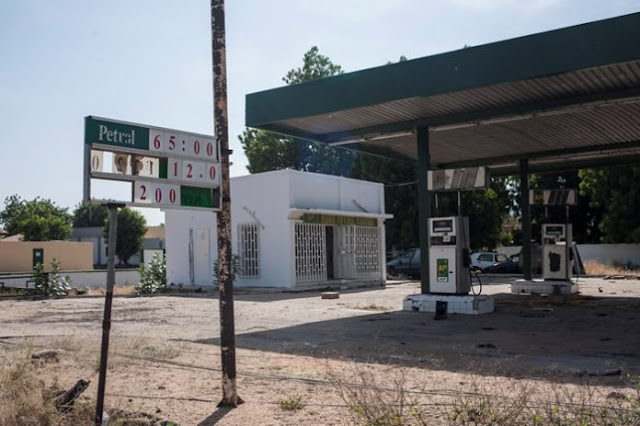The houses are burnt-out shells, and charred cars and petrol pumps line the roads in the once-bustling Nigerian trade hub of Bama before it was razed by Boko Haram jihadists.
As the second biggest town in northern Borno State, Bama was home to some 270,000 residents and a major trading post on the road to Cameroon.
But today, 85 percent of it is destroyed.
“Bama is no more,” said teacher Mustapha Mallam, who like tens of thousands of others, lost everything when he had to flee his home when Boko Haram took over in September 2014.
The fighters “burnt everything” before being evicted by the Nigerian army in March this year, he said.
When the soldiers entered the city, they found corpses and spent cartridges strewn across the streets.
The only signs of life here now are a handful of soldiers and workers who are trying to repair Bama’s main avenue.
The bush, meanwhile, is reclaiming many of the abandoned homes in the once lush town, which lies just 70 kilometres (about 40 miles) from the state capital Maiduguri.
– ‘Hell on earth’ –
During the seven months under Boko Haram rule, Bama was “hell on earth,” said Ali Mbusube, who now heads a camp for displaced people on the fringes of the town.
“There was no food, no school, not even a hospital — and if you stole something they would cut off your hand,” he said.
The camp now houses a little over 10,000 people who either escaped or survived the reign of terror.
“During the day, they (would) bring all the men aged over 18 into the prison and kill them,” Mbusube said.
Mallam said he found “nothing but ash” when he returned to Bama the first time.
“It was a very peaceful city,” he said recalling how his seven children used to play outside in the yard.
Maiduguri has been at the epicentre of Boko Haram’s seven-year insurgency that has left at least 20,000 people dead in Nigeria and border areas of neighbouring Niger, Chad and Cameroon.
Another 2.6 million have been left homeless.
A sustained counter-offensive has seen the military retake swathes of territory from the insurgents, but the jihadist group still poses a security threat to civilians.
The charred remains of what was once a mosque, its pockmarked walls blackened by fire, is only recognisable by the small green minaret, its star and crescent silhouetted against the sky.
Bama’s main hospital is also in ruins and now serves as a playground for children living in the nearby camp for the displaced.
Read More >>>



No comments:
Post a Comment